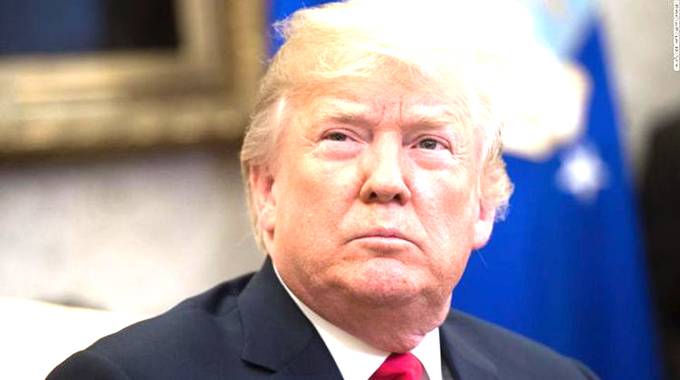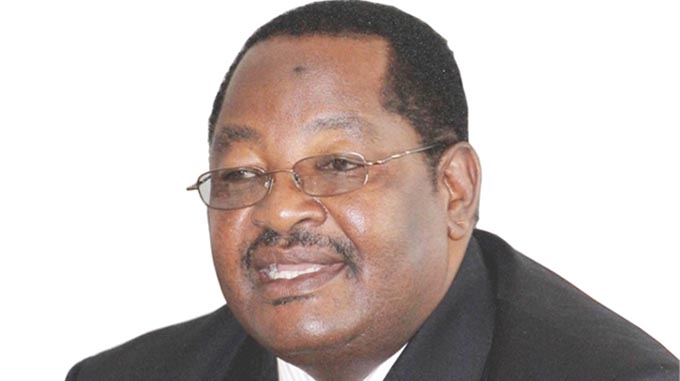Trump says no deal with Mexico

The United States on Wednesday barrelled closer to imposing tariffs on all Mexican imports as high-stakes negotiations at the White House failed to immediately resolve President Trump’s demand that Mexico prevent a surge of Central American migrants from flowing across the south-western border.
President Trump declared on Wednesday evening on Twitter that “not nearly enough” progress had been made and warned that “if no agreement is reached, Tariffs at the 5 percent level will begin on Monday, with monthly increases as per schedule.”
New figures released showed that illegal border crossings have risen to a 13-year high, underscoring the roots of the president’s rage.
But political resistance to President Trump’s tariff threat has also intensified, with skeptical Republican senators asking to hear directly from the president before he takes an action that could shake the economies of both countries.
President Trump, traveling in Europe, had insisted earlier that he was not bluffing, but he also predicted that Mexico would make a deal to avert a series of escalating surcharges on its products.
Marcelo Ebrard, the Mexican foreign minister, met Wednesday afternoon for two hours with Vice President Mike Pence and Secretary of State Mike Pompeo, hoping to convince President Trump’s top advisers that Mexico is working aggressively to protect the border.
In his tweet just after 6:30 p.m., the president said that talks with Mexico had ended for the day and would resume yesterday.
There was no indication that President Trump would be satisfied by anything short of direct evidence that Mexico had completely ended the flow of migration through its country. The president has repeatedly railed in private and public about what he considers to be a failure of Mexican authorities. He has set a deadline of June 10, saying he will use broad emergency powers to begin taxing all Mexican goods at 5 percent and to increase the tax to 25 percent by October if illegal crossings do not completely end — a feat that diplomats, politicians and immigration experts said is wildly unrealistic.
During the White House meeting, which lasted about 90 minutes, Mexican officials described for their counterparts the steps they have already taken to reduce the flow of migration, including deploying additional troops to the border with Guatemala and beefing up the fight against organised crime, according to a senior Trump administration official.
The official said the Mexicans appeared sincere, but Mr Pence concluded that the efforts were insufficient because they would most likely reduce migration only at the margins, instead of the wholesale changes that President Trump was looking for.
Mr Pence and Mr Pompeo countered by urging the Mexicans to enter into a “third safe country” treaty in which Mexico would assume responsibility for granting asylum to the migrants, something the Mexicans have steadfastly opposed.
Top legal officials from Mexico are scheduled to meet on Thursday with Pat Cipollone, the White House counsel, to discuss the treaty and other issues, the official said. Diplomats for both countries will meet at the State Department to continue the talks.
Wednesday’s announcement by Customs and Border Protection of a significant surge in border crossings was meant to put pressure on the Mexican government to meet President Trump’s demands.
More than 144 200 migrants were arrested and taken into custody along the south-western border in May, a 32 percent increase from April and the highest monthly total in 13 years.
Most crossed the border illegally, while about 10 percent arrived without the proper documentation at ports of entry along the border.
“Look, the drugs that are coming in, the people that are coming in unchecked, they’re swamping our border,” President Trump said during a meeting with the Irish prime minister in Shannon, Ireland. “Mexico can stop it. They have to stop it. Otherwise, we just won’t be able to do business. It’s a very simple thing.”
In his tweet, the president added that border arrests were so high “because of Mexico & the Democrats in Congress refusing to budge on immigration reform.”
In a news conference on Wednesday at the Mexican Embassy, Mr Ebrard said he was optimistic about reaching a resolution before the tariffs go into effect Monday.
“We have the opportunity to share our point of view, explain why the Mexican position, that we are following regarding this issue, and tomorrow we are going to follow the talks,” he said.
He added that the dialogue focused on Mexico’s proposals on migration, rather than the tariffs.
While President Trump insists he is committed to imposing tariffs, the president faces intense opposition not only from Democrats, but also from business executives, economists and members of his own party, who say tariffs are the wrong approach to dealing with immigration issues. Republican senators have been mobilising to prevent the White House from moving ahead with tariffs, warning President Trump that they are almost uniformly opposed to his plans to tax Mexican imports.
At a lunchtime briefing on Tuesday, Senator Mitch McConnell of Kentucky, the majority leader, told administration lawyers that Republican senators needed to hear directly from President Trump before he slapped tariffs on Mexico, according to two Republican officials familiar with the discussion.
In the closed-door lunch off the Senate floor, several Republicans complained bitterly about the tariffs, arguing they would harm their constituents and the economy while doing nothing to improve the immigration problems at the border. Many of them were irritated that the discussion about a major policy move that could take effect within days was unfolding at a time when the president was abroad, and that the administration sent two lower-level lawyers who could not answer basic questions about the tariffs to Capitol Hill to brief them.
Mr McConnell asked the lawyers when the tariffs would go into effect. When they answered June 10, Mr McConnell replied, “O.K., Monday,” and said Republican senators would need to hear from the president before then.
President Trump is scheduled to return from his European trip on Friday.
Across the globe, world leaders are trying to take steps to mollify President Trump.
In recent days, Guatemalan officials signed a cooperation agreement with United States officials to deploy about 80 Border Patrol agents and Department of Homeland Security investigators to Guatemala to advise on screening families and children crossing the border. The authorities will also help build out interior checkpoints. — The New York Times









Comments